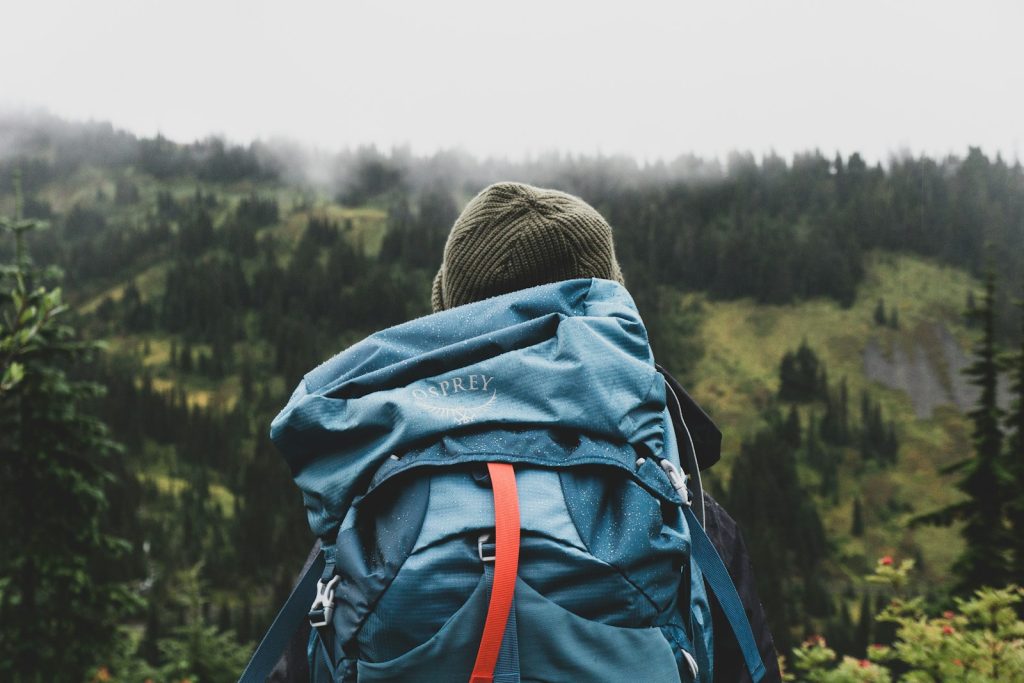
Car Camping vs Backpacking: Choosing the Right Adventure for You
We may earn money or products from the companies mentioned in this post.
Camping is a great way to get outdoors and enjoy nature. Whether you prefer car camping or backpacking, both offer unique experiences that can be tailored to fit your needs. Car camping involves traveling to a campsite in a vehicle and either sleeping inside of the vehicle itself, or setting up a camping tent or other shelter for the duration of the stay. Backpacking, on the other hand, involves carrying all of your gear on your back and setting up camp in the wilderness.
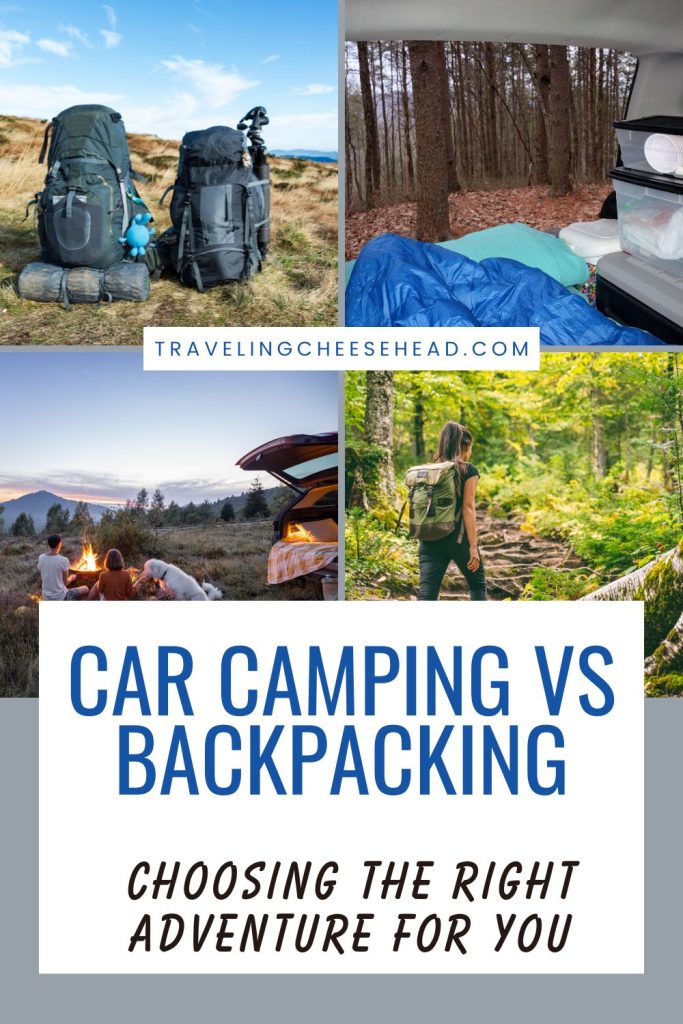
Car camping vs backpacking have their advantages and disadvantages. Car camping can offer more comfort and convenience, as you have access to your vehicle and can bring more gear and supplies.
Backpacking, on the other hand, offers a more immersive experience in nature and can be a great way to challenge yourself physically and mentally. It’s important to consider your personal preferences and needs when deciding which type of camping is right for you.
Understanding Car Camping
Car camping is a form of camping where you drive to a campsite and park your car nearby. You can set up camp and use your car as a base camp for day hikes and other outdoor activities. Here are some of the benefits and challenges of car camping.
Benefits of Car Camping
Comfort: Car camping allows you to bring more gear and supplies than backpacking, including larger camping tents, air mattresses, and other cushy items like chairs and coolers. You may also (depending upon location) have access to amenities like running water, electricity, and bathrooms.
Convenience: Car camping is a convenient way to enjoy the outdoors without having to hike long distances or carry heavy backpacks. You can easily bring along all the gear and food you need for a comfortable camping experience.
Accessibility: Car camping is accessible to everyone, regardless of age or fitness level. You don’t need to be in good shape or have any special skills to enjoy car camping.
Challenges of Car Camping
Crowds: Car camping can be crowded, especially during peak season. You may have to deal with noisy neighbors, limited privacy, and crowded campsites.
Cost: Car camping can be more expensive than backpacking, especially if you choose to stay at private campgrounds that offer amenities like showers and electricity.
Lack of solitude: If you’re looking for solitude and a true wilderness experience, car camping may not be the best choice. You’ll be sharing the campsite with other campers and may have to deal with noise and other distractions.
Car camping is a great way to enjoy the outdoors in comfort and convenience. However, it does come with some challenges, including crowds, cost, and lack of solitude.
Exploring Backpacking
Backpacking is a type of camping where you carry all of your gear on your back and hike to your campsite. It requires more physical effort and planning than car camping, but it also offers a more immersive and adventurous experience.
Advantages of Backpacking
One of the main advantages of backpacking is the opportunity to explore remote and beautiful wilderness areas that are inaccessible by car. You can enjoy stunning views, fresh air, and the peacefulness of nature without the noise and distractions of modern life.
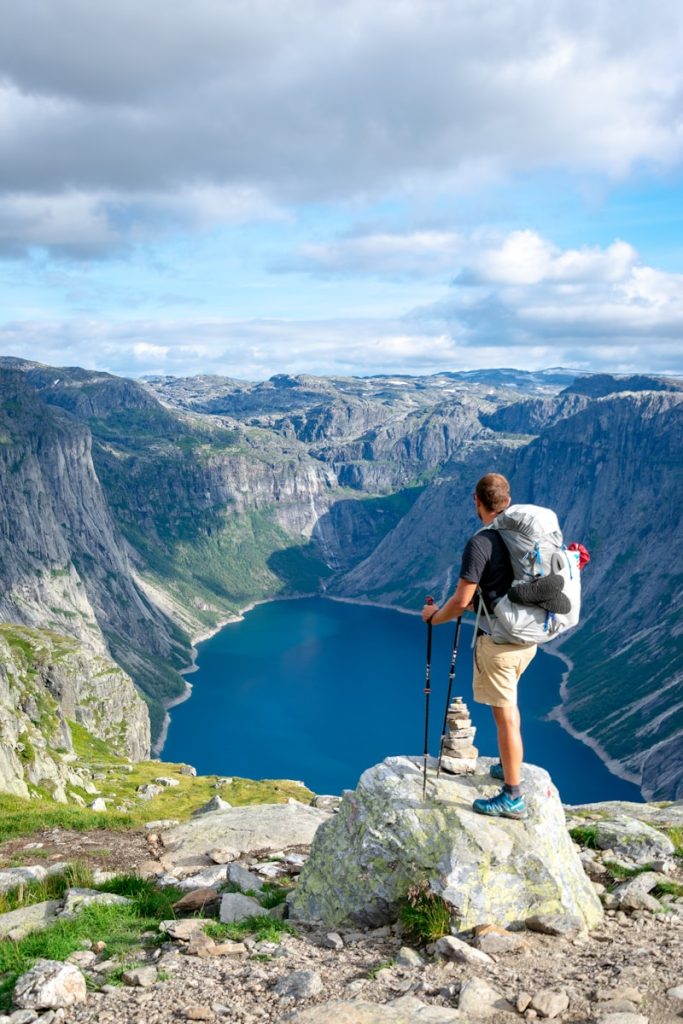
Backpacking also offers a sense of self-sufficiency and accomplishment. You have to rely on your own skills and resources to survive in the wilderness, which can be very empowering. You can challenge yourself physically and mentally, and develop new skills like navigation, campsite selection, and wilderness first aid.
Difficulties of Backpacking
Backpacking can be physically demanding, especially if you are carrying a heavy pack or hiking in difficult terrain. You need to be in good physical condition and have the proper gear and clothing to stay comfortable and safe.
Backpacking also requires more planning and preparation than car camping. You need to research your route, obtain permits if necessary, and pack carefully to ensure you have everything you need without carrying too much weight. You also need to be aware of potential hazards like wildlife, weather, and terrain conditions, and be prepared to respond to emergencies if they arise.
Backpacking is a challenging but rewarding way to experience the outdoors. It offers a unique opportunity to connect with nature and yourself, and to develop new skills and perspectives. If you are willing to put in the effort and preparation, backpacking can be a life-changing experience that you will never forget.
Differences Between Car Camping and Backpacking
Car camping and backpacking are two popular ways to enjoy the outdoors. While both involve camping, there are significant differences between the two.
Transportation
The most obvious difference between car camping and backpacking is transportation. Car camping involves driving your car to a campsite, where you can park your car and set up your tent nearby. Backpacking, on the other hand, involves hiking to a remote location with all your gear on your back, without the use of a vehicle.
Gear
Another major difference between car camping and backpacking is the gear you need. Car camping allows you to bring more gear, as you can store it in your car. With backpacking, you need to carry everything you need on your back, so you need to pack light. Backpacking gear tends to be more lightweight and compact, while car camping gear can be more comfortable and luxurious.
Location
Car camping typically takes place in established campgrounds, where you have access to amenities like toilets, running water, and fire pits. Backpacking, on the other hand, takes place in more remote locations, where you need to be self-sufficient and carry everything you need with you.
Cost
Car camping is generally less expensive than backpacking, as you don’t need to invest in as much specialized gear. However, car camping fees can add up, especially if you’re staying in a popular campground during peak season. Backpacking can be more expensive up front, as you need to invest in quality gear, but once you have the gear, it can be a more affordable way to enjoy the outdoors.
Experience
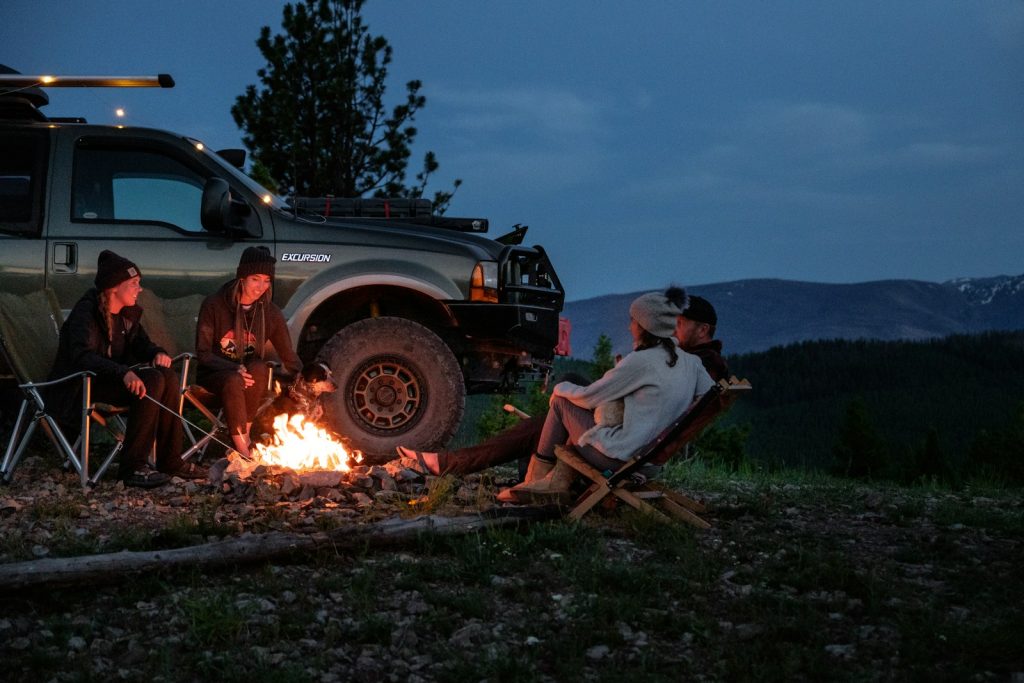
Finally, the experience of car camping and backpacking is quite different. Car camping is a more social experience, as you’re likely to be surrounded by other campers and have access to amenities like showers and picnic tables.
Backpacking is a more solitary experience, as you’re likely to be in a remote location with few other people around. However, backpacking can offer a more immersive and rewarding experience, as you’re able to truly disconnect from the modern world and enjoy nature.
Choosing the Right Option for You
When it comes to choosing between car camping and backpacking, there are several factors to consider. Each option has its own unique advantages and disadvantages, and the choice ultimately depends on your personal preferences and interests. In this section, we’ll explore some of the considerations for both car camping and backpacking to help you make an informed decision.
Considerations for Car Camping
Car camping is a great option for those who want to enjoy the great outdoors without sacrificing too many comforts. Here are some things to consider when deciding if car camping is the right choice for you.
- Comfort: Car camping allows you to bring more gear and supplies than backpacking, including larger camping tents, air mattresses, and other cushy items like chairs and coolers. You may also (depending upon location) have access to amenities like running water, electricity, and campfire rings.
- Accessibility: Car camping is generally more accessible than backpacking. You can drive right up to your campsite, making it easy to transport gear and supplies. This also means that you can bring more food and water without worrying about the weight.
- Flexibility: With car camping, you have the flexibility to change your plans at a moment’s notice. If the weather turns bad or you decide you want to explore a nearby town, you can easily pack up and move on.
Considerations for Backpacking
Backpacking is a great option for those who want to get off the beaten path and explore remote wilderness areas. Here are some things to consider when deciding if backpacking is the right choice for you.
- Adventure: Backpacking offers a more adventurous experience than car camping. You’ll be exploring remote wilderness areas that are inaccessible by car, and you’ll be carrying everything you need on your back.
- Fitness: Backpacking requires a higher level of fitness than car camping. You’ll be hiking long distances with a heavy pack, so it’s important to be in good physical shape.
- Simplicity: Backpacking is a simpler experience than car camping. You’ll be carrying everything you need on your back, so you’ll need to pack light and be prepared to rough it a bit.
Ultimately, the choice between car camping and backpacking comes down to personal preference. If you’re looking for a more comfortable and accessible experience, car camping may be the right choice for you. If you’re looking for adventure and a more rugged experience, backpacking may be the way to go.
Essential Gear for Each
When it comes to camping, whether it be car camping or backpacking, having the right gear is essential. While there is some overlap between the two, there are some key differences in the gear required for each.
Car Camping Gear
Car camping allows for a bit more luxury and comfort than backpacking, as you have the ability to bring more gear with you. Here are some essential gear items to consider for car camping.
- Tent: A larger, more spacious tent is ideal for car camping. Look for a tent that is easy to set up and has plenty of ventilation.
- Sleeping Gear: A comfortable sleeping pad and sleeping bag are a must for a good night’s sleep. Consider bringing a pillow or even a camping cot for added comfort.
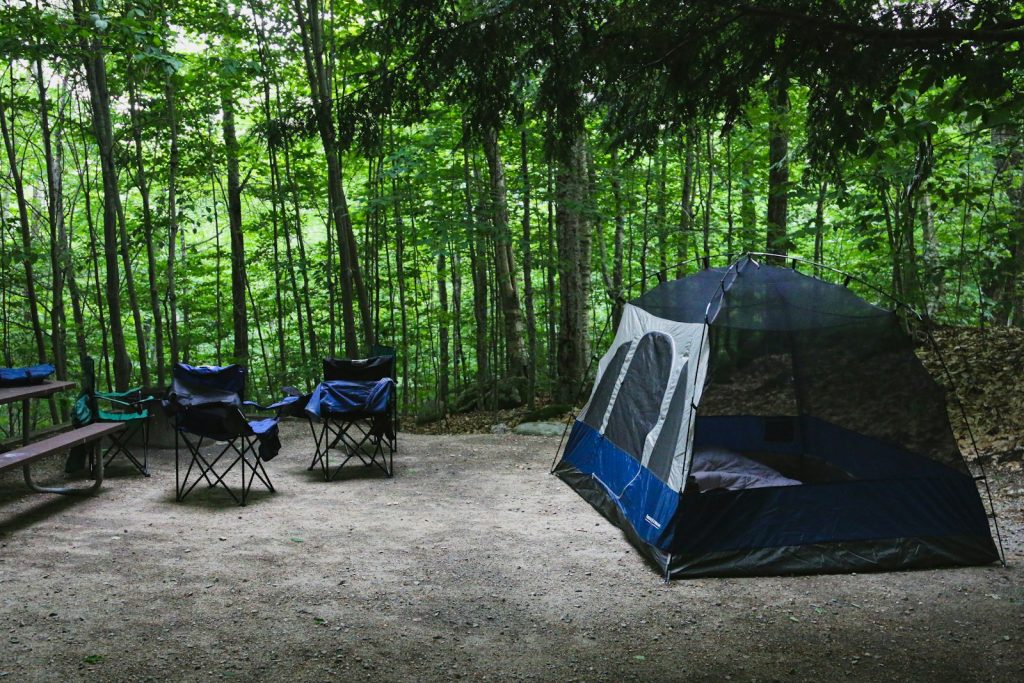
- Camp Chairs: Sitting around the campfire is a must, and having comfortable camp chairs makes it even better.
- Cooler: Keeping your food and drinks cold is important, so investing in a good cooler is a must.
- Camp Stove: Cooking over a campfire is great, but having a camp stove allows for more cooking options and is often easier to use.
- Lighting: Headlamps, lanterns, and flashlights are all essential for lighting up your campsite at night.
Backpacking Gear
Backpacking requires a more minimalist approach to gear, as you will be carrying everything on your back. Here are some essential gear items to consider for backpacking.
- Backpack: A good backpack is essential for carrying all of your gear. Look for a backpack with a comfortable fit and plenty of storage options.
- Tent: A lightweight, easy-to-set-up tent is ideal for backpacking. Look for a tent that is designed for backpacking and is easy to pack.
- Sleeping Gear: A lightweight sleeping bag and sleeping pad are essential for backpacking. Look for gear that is compact and easy to pack.
- Water Filtration: Depending on where you are backpacking, having a water filtration system is essential for staying hydrated.
- Stove: A compact, lightweight stove is essential for backpacking. Look for a stove that is easy to use and can boil water quickly.
- Lighting: Headlamps are essential for backpacking, as they allow you to navigate in the dark while keeping your hands free.
Safety Tips for Both
Whether you’re car camping or backpacking, safety should always be a top priority.
1. Plan ahead
Before embarking on your trip, make sure to research the area you’ll be visiting. Know the weather forecast, the terrain, and any potential hazards. Make a detailed itinerary and share it with someone you trust. This way, if something goes wrong, someone will know where to look for you.
2. Pack the essentials
No matter if you’re car camping or backpacking, always pack the essentials. This includes a first aid kit, a map and compass, a flashlight, extra food and water, and a whistle. In case of an emergency, these items could save your life.
3. Practice fire safety
If you plan on having a campfire, make sure to follow fire safety guidelines. Choose a safe location away from any flammable materials, clear the area around the fire, and keep a bucket of water nearby in case of an emergency. Always make sure the fire is completely extinguished before leaving the area.
4. Respect wildlife
When camping or backpacking, you are a guest in the animals’ home. Respect their space and do not approach them. Store your food in bear-resistant containers or hang it from a tree away from your campsite. This will help prevent attracting wildlife to your campsite.
5. Be prepared for emergencies
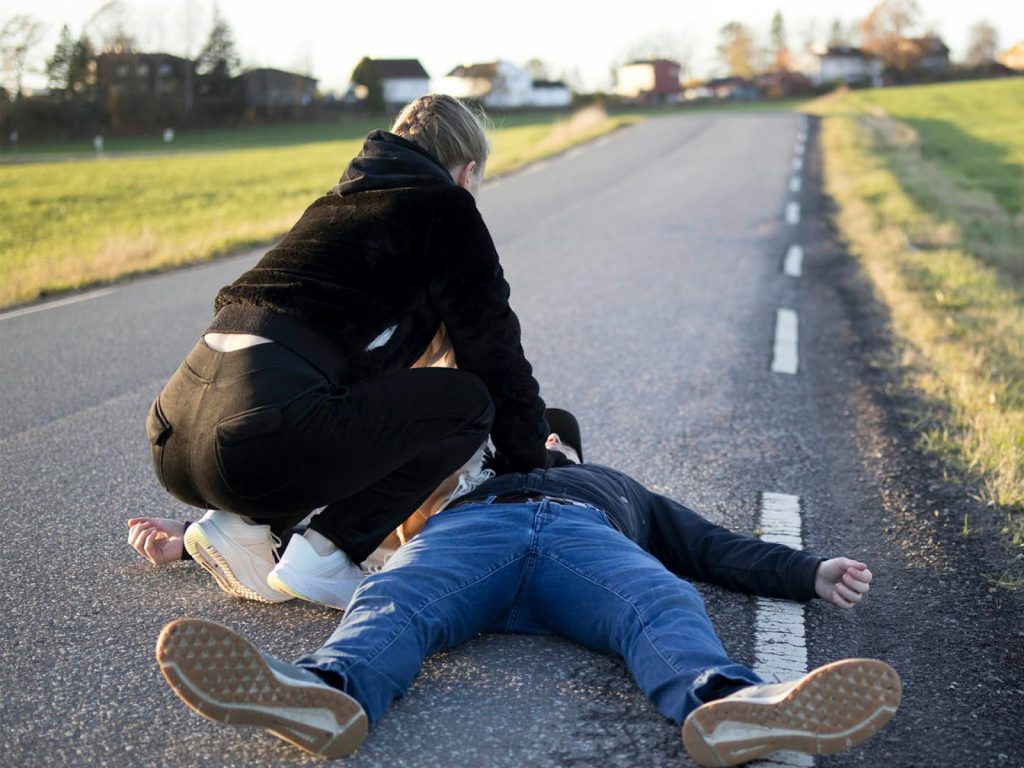
Accidents can happen, so it’s important to be prepared. Know basic first aid and CPR, and bring a fully charged cell phone or satellite phone with you. If you’re backpacking, consider bringing a personal locator beacon (PLB) or satellite messenger device in case of an emergency.
By following these safety tips, you can help ensure a safe and enjoyable camping or backpacking trip.
Final Thoughts on Car Camping vs Backpacking
Choosing between car camping and backpacking ultimately depends on your personal preferences and what you hope to gain from your camping experience.
Car camping provides a more comfortable and convenient option for those who want to enjoy the outdoors without sacrificing the amenities of home. It can be a great choice for families with young children or for those who prefer a more relaxed camping experience.
With a vehicle, you can easily bring along all the gear and supplies you need, including a portable stove, cooler, and comfortable sleeping arrangements.
On the other hand, backpacking offers a more immersive and challenging experience for those who want to truly disconnect from the world and reconnect with nature. It allows you to explore remote wilderness areas that are inaccessible by car and provides a sense of accomplishment and self-sufficiency.
However, backpacking requires more planning, preparation, and physical exertion than car camping. You will need to carry all your gear and supplies on your back, which means packing light and being mindful of weight and space limitations.
Ultimately, the decision between car camping and backpacking comes down to what you value most in a camping experience. If you prioritize comfort and convenience, car camping may be the way to go. If you crave adventure and a deeper connection with nature, backpacking may be more your style.
Regardless of which option you choose, both car camping and backpacking offer unique opportunities to explore the great outdoors and create lasting memories.
Frequently Asked Questions about Car Camping vs Backpacking
What are the advantages of backpacking over car camping?
Backpacking allows you to explore remote areas and experience nature up close and personal. With backpacking, you can carry everything you need on your back, which gives you more freedom to explore and camp in different locations. Backpacking also provides a more immersive experience in nature and allows you to disconnect from the distractions of the modern world.
How do you choose between car camping and backpacking?
The choice between car camping and backpacking depends on your personal preferences, physical abilities, and the type of experience you want. If you want a more comfortable camping experience with access to amenities and the ability to bring more gear, car camping may be the best option. If you want to explore remote areas and experience nature more intimately, backpacking may be the better choice.
What are the key differences between backpacking and car camping?
The main difference between car camping vs backpacking is the level of comfort and gear you can bring. Car camping allows you to bring more gear and supplies, including larger tents, air mattresses, and chairs. Backpacking, on the other hand, requires you to carry everything you need on your back, which limits the amount of gear you can bring. Backpacking also requires more physical effort and preparation.
What should you consider before deciding to go car camping or backpacking?
Before deciding whether to go car camping or backpacking, consider your physical abilities, the location you want to camp, the type of experience you want, and the gear you have. Car camping is a good option for those who want a more comfortable camping experience and have access to a car. Backpacking is a better option for those who want to explore remote areas and experience nature more intimately.
What are the benefits of camping with a tent versus car camping?
Camping with a tent provides a more immersive experience in nature and allows you to disconnect from the distractions of the modern world. Tents are lightweight, easy to set up, and provide shelter from the elements. Car camping, on the other hand, allows you to bring more gear and supplies, including larger tents and air mattresses, and provides access to amenities like running water and electricity.
How does backpacking compare to hiking in terms of gear and preparation?
Backpacking and hiking require similar gear and preparation. However, backpacking requires you to carry everything you need on your back, which limits the amount of gear you can bring. Hiking allows you to carry a lighter pack and explore different trails without the need for overnight camping gear. Both activities require proper footwear, clothing, and navigation tools.